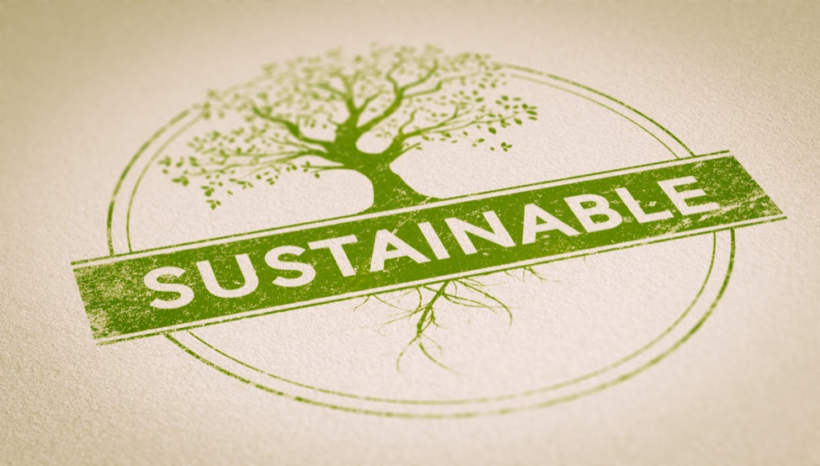
By KURT WEBBER
Clean labels, products free of artificial ingredients and synthetic chemicals, are becoming increasingly popular with consumers of all ages. But as consumer demand for healthy, all-natural products continues to climb, the food industry is struggling to adapt. Clean labels pose numerous benefits to society, helping people make healthier decisions at the grocery store, making the food industry more sustainable and improving our relationship with the environment.
But some feel that these changes are happening too fast, leaving some companies scrambling to catch up. Go beyond the label and learn how this trend is affecting the food industry and society as a whole.
Rising Demand for Healthy Ingredients
Changing consumer demand is forcing some of the largest food manufacturers in the world to rethink some of their most successful products. Major brands like Dannon yogurt and Campbell’s soups are relaunching their products with no artificial ingredients like high fructose corn syrup and MSG, replacing these ingredients with natural alternatives that consumers recognize and support like honey and sea salt.
Consumers, have largely been the ones driving new clean label trend, demanding that companies offer healthier products at their local grocery store. Clean labels and these revised ingredients lists are an attempt to woo over health-conscious consumers. But without a verified set of standards behind the movement, major corporations are struggling to understand what the term “clean label” means and how their decisions will impact their bottom line.
Consumers can’t seem to agree on what ingredients should be considered clean and unclean. Natural sweeteners like fruit juice and cane sugar may be too indulgent for some consumers, but for others, this could be the perfect replacement for high fructose corn syrup. All this uncertainty is keeping food manufacturers on their toes as they struggle to understand their customers’ specific concerns. As a result, some of the largest packaged food manufacturers are seeing a drop in sales.

Healthy Eating and Diet Changes
While health-conscious consumers are the ones actively driving major food manufacturers to change their approach to food, other consumers are benefiting from the results. Campbell’s, General Mills and other major brands with a strong grip on the North American food market are wiping the slate clean as they change the recipes behind some of their best-selling products. This means some consumers will start eating healthier without even realizing it. Fans of Campbell’s soups and General Mills baking mixes will purchase healthier options at the store even if they’re not going out of their way to look at the label and read through the ingredients.
We may see less sugar, sodium and fat intake among American consumers in the years to come as these companies finish rolling out new lines of products. Over time, this will likely help in decreasing the rate of childhood obesity, diabetes, heart disease and other serious medical conditions.
Changing Consumer Spending Habits
Thanks to technology and the rise of eCommerce shopping, consumers now have more options than ever before when it comes to buying food. Large online marketplaces like Amazon and Walmart are shipping food right to the customer’s door. These new shopping methods are connecting consumers with smaller, independent food manufacturers that are a part of the clean label movement. Suddenly, consumers can order organic, all-natural products from all over the country instead of having to depend on whatever their local grocery has on the shelf.
Once consumers get a taste of these smaller clean label brands, more grocery stores are starting to stock their shelves with these kinds of products. Legacy brands are starting to see a dip in sales as private label food products now make up 17 percent of all grocery store sales. In fact, around 80 percent of all U.S. consumers report buying at least one independent product every time they go to the grocery store, and 85 percent of consumers trust these independent brands just as much as some of the biggest food brands on the market.
This trend has some major food manufacturers looking for ways to get involved with this shift towards smaller, independent food producers. Companies like General Mills and Kraft Heinz are working to support and guide food startups on their path towards success. Nearly every major food manufacturer has a venture capitalist wing that looks for new business opportunities in an increasingly competitive marketplace. Somecompanies will buy the independent food producers outright, while others will offer training and assistance as these companies grow and expand.

The Art of the “Clean” Brand
The clean label movement isn’t just about using all-natural ingredients. It’s also about a brand’s overall identity as companies move away from unsustainable farming and manufacturing techniques. Food manufacturers large and small are promoting themselves as leaders of the clean food, eco-friendly revolution. This usually includes improving energy efficiency, improving the conditions and treatment of livestock and reducing water waste and carbon emissions. These kinds of changes are being marketed towards consumers who want to support businesses that share their commitment to the environment and all-natural foods.
With more competition in the marketplace, food manufacturers are doing everything they can to get the attention of consumers and stand out in the grocery store. We’ve seen more manufacturers using food product labels that describe the health benefits of their products. It’s also fairly common to see companies offering more information on how the food gets made, such as information about the farms and the animals that live there, how they’re treated and what they eat. Formany legacy food companies, this also means changing their story and undoing the public’s negative perception of their brand. The clean brand has become a central component of this new marketing strategy as companies figure out how to win over this new generation of consumers.
The clean label movement is affecting companies of all sizes as everyone races to cash in on rising consumer demand for healthy products. From labels to traditional advertisements, companies are doing everything they can to show consumers that they share their commitment to healthy eating and saving the environment. With social media and the internet paving the way for more transparency in the food industry, these trends aren’t going anywhere any time soon.
Kurt Webber started Blanco in 1996 after working in the label industry for more than 10 years. Kurt has experience with most every known Pressure Sensitive Label application and is very involved in Production and Marketing at Blanco. Kurt’s wife, Alice, works alongside him at Blanco. They have 3 adult sons and a couple of pups and a cat. Kurt is an avid outdoorsman, he enjoys Hunting, Fishing and Hiking.



Leave a Reply